Indonesia faces aging farmers, regeneration highly needed
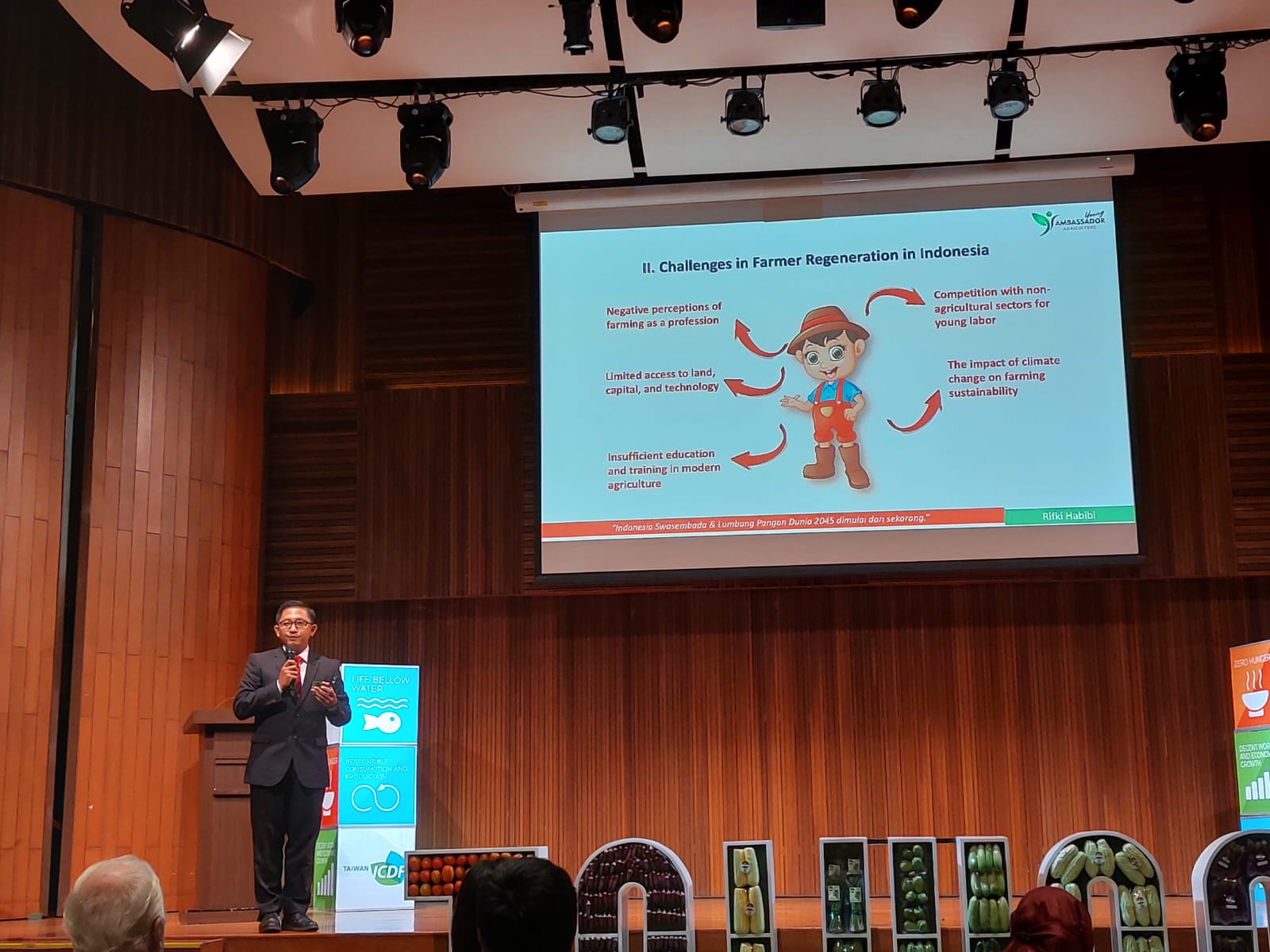
An Indonesian Agriculture Ambassador from West Java province, Rf. Habibi, delivered a speech entitled 'Challenges in Farmer Regeneration and Strategies to Strengthen the Development of Young Farmers in Indonesia', at the celebration of the 48th anniversary of the Taiwan Technical Mission in Indonesia, which was held in Jakarta on Monday (November 25, 2024). (Indonesia Window/Ronald Rangkayo)
Farmers' regeneration in Indonesia is crucial to anticipate aging farmers, with almost 40 percent of them being over 55 years old.
Jakarta (Indonesia Window) – The agricultural sector is one of the pillars in maintaining Indonesia's food security and resilience, as well as supporting national economic growth.Data from the Indonesian Ministry of Finance stated that in the third quarter of 2023, the agricultural sector recorded a growth of 1.46 percent (year-on-year) and contributed 13.57 percent to Gross Domestic Product (GDP).The role of farmers and their hard work also contributed to these figures. However, currently Indonesia is faced with the problem of an increasing number of aging farmers, while most young people in the country view farming as an unfavorable career choice for their future.The problem of aging farmers was expressed by an Indonesian Agriculture Ambassador from West Java province, Rf. Habibi, while delivering a speech entitled 'Challenges in Farmer Regeneration and Strategies to Strengthen the Development of Young Farmers in Indonesia', at the celebration of the 48th anniversary of the Taiwan Technical Mission in Indonesia, which was held here on Monday (Nov. 25)."We are not only facing the problem of aging farmers, which almost 40 percent of Indonesian farmers are over 55 years old, but also the decreasing number of farmers because being a farmer is still not seen as a proud profession," he said, adding, "In fact, in the midst of the COVID pandemic that has paralyzed many aspects of the national and global economy, agriculture in the country continues to grow.In addition to the negative view of farmers as a profession, he continued, the limited access of young people to obtain land, capital, and the latest education and technology training is also a challenge in farmer regeneration in Indonesia."Not a few agricultural lands have been lost due to conversion. On the other hand, there is agricultural land whose soil pH is starting to become acidic due to the excessive use of inorganic fertilizers," Habibi explained.He continued, the agricultural sector must also face the threat of climate change which has an impact on the planting process to harvesting.According to Habibi, Taiwan's rapidly developing agricultural sector, both in terms of human resource capacity and technology, can be a reference for Indonesian farmers in their efforts to develop this sector in the country."Indeed, being a farmer must have strong characteristics, while Gen Z and millennials today are mostly 'moody'. When they encounter problems and fail, they quickly give up," Habibi said.In fact, he emphasized, "the process of becoming a farmer takes at least five years. The first year is the beginning stage, the second year is processing, the third year is upgrading, and the fourth and fifth years are upscaling."Habibi appreciated the government's efforts to achieve rice self-sufficiency and strengthen national food security by creating three million hectares of rice fields outside Java, as well as involving young Indonesian farmers.Statistical data shows that the number of millennial farmers aged 19-39 is recorded at 6,183,009, or covering 21.93 percent of the total number of farmers throughout Indonesia.He hopes that collaboration between stakeholders in a hexahelix structure involving government, society, industry and business, academics, law and regulation makers, and the mass media can help make the regeneration of farmers in Indonesia a success."We need the mass media to conduct a propaganda campaign, to change the perception of young people that farming is a proud profession now and in the future," Habibi said.Reporting by Indonesia WindowBagikan
Komentar
Berita Terkait

Indonesia makes Palestinian issue priority agenda
Indonesia
•
27 Oct 2019
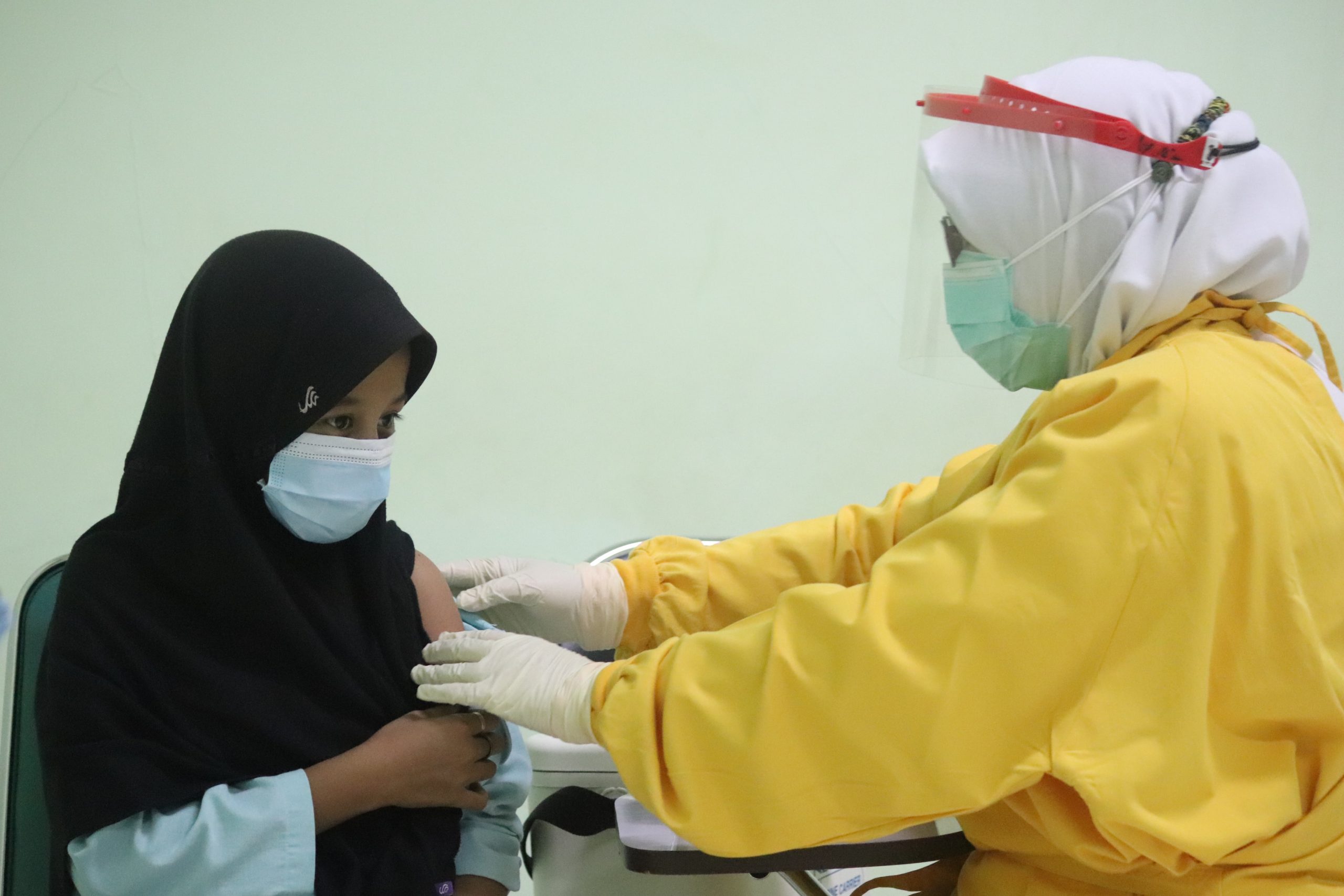
COVID-19 – Indonesian children aged 6-11 to be vaccinated at schools
Indonesia
•
09 Nov 2021
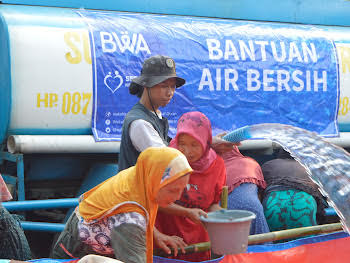
Feature – Indonesian agency distributes clean water to people in Banten province
Indonesia
•
25 Oct 2023

Indonesian crude oil set at 95 USD per barrel in 2023 state budget draft
Indonesia
•
12 Sep 2022
Berita Terbaru

Interview – Prof. Hikmahanto: US, Israel war on Iran to overthrow government
Indonesia
•
02 Mar 2026
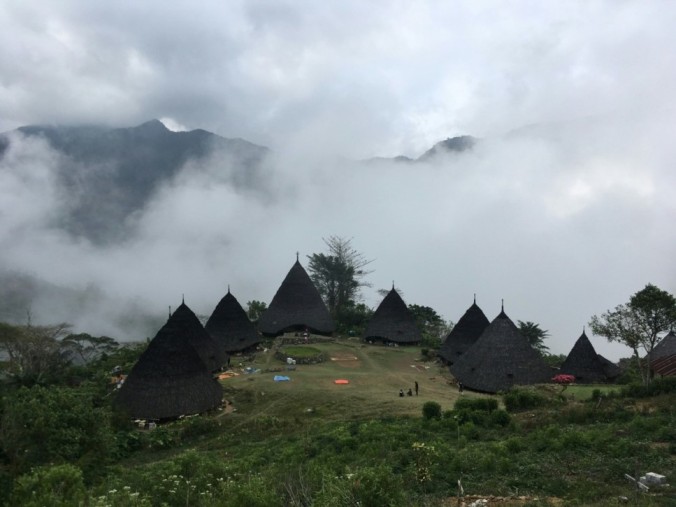
Halal products accepted by non-Muslims in Indonesia’s E Nusa Tenggara, proof of inclusive Islam
Indonesia
•
02 Mar 2026
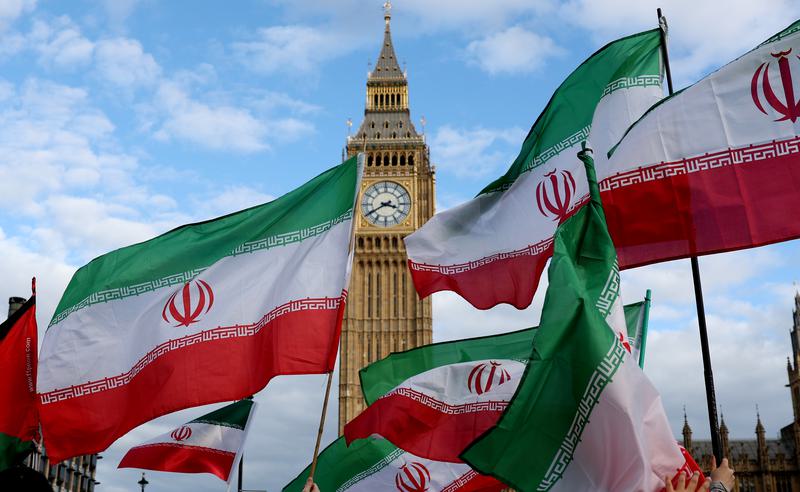
Iran expects Indonesia to mediate conflict after US, Israeli deadly attack
Indonesia
•
01 Mar 2026
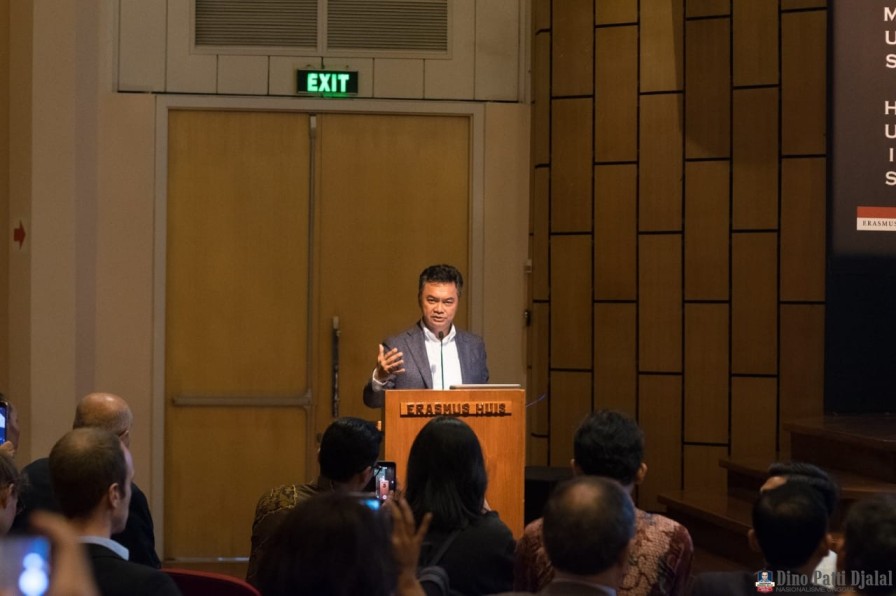
Opinion – Dino Patti Djalal: Iran won’t remain silent about US and Israeli attacks
Indonesia
•
01 Mar 2026
